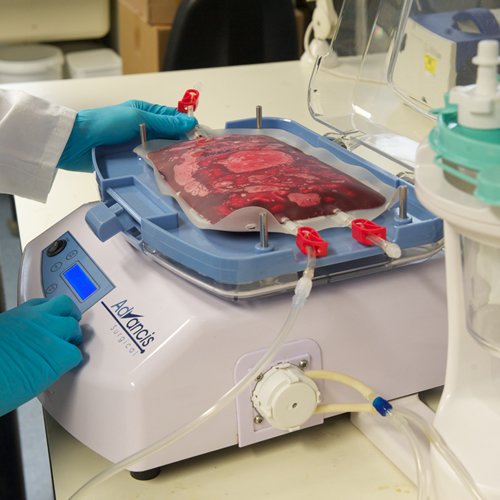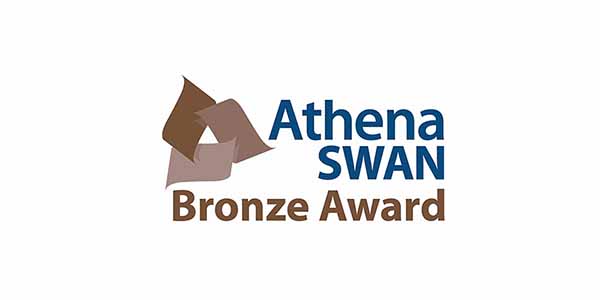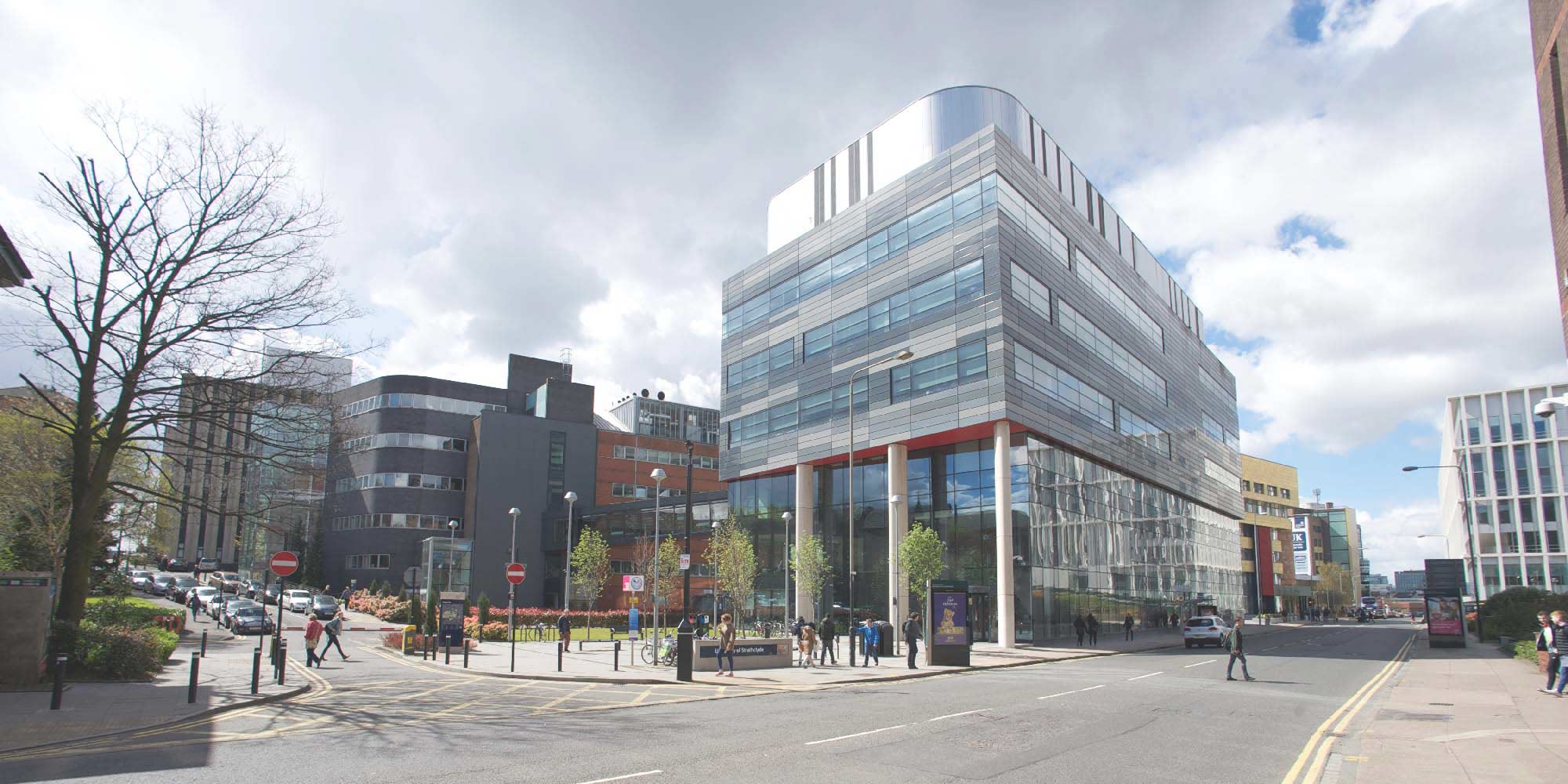MEng Biomedical Engineering
ApplyKey facts
- UCAS Code: B831
- Accreditation: Institute of Physics & Engineering in Medicine, Institution of Mechanical Engineers, Institution of Engineering & Technology
6th in the UK (1st in Scotland) for Biomedical Engineering (Times/Sunday Times Good University Guide 2023)
Funded places: Scholarships available
Study with us
- gain training in biomedical engineering as well as core mechanical and electrical engineering subjects
- blood salvage technology developed by Strathclyde bioengineers is in use around the world
- benefit from state-of-the-art technology in one of the longest-established such departments in the world
- prepare for a wide range of career opportunities in the industry, academia, hospitals and government agencies
Why this course?
Biomedical engineering is a rapidly expanding industry, with the National Health Service, industrial and academic research and development all making advances to meet the increasing demands of healthcare.
Studying with us, you'll gain broad training in modern biomedical engineering and learn about the complexities of human anatomy and physiology. You will also study core mechanical and electrical engineering subjects.
The Department of Biomedical Engineering has recently celebrated its 50th anniversary and is one of the oldest such departments in the world, with expertise and excellence in teaching and research.
Accreditation
The MEng Biomedical Engineering degree is accredited by the Institute of Physics & Engineering in Medicine, the Institution of Mechanical Engineers and the Institution of Engineering & Technology, on behalf of the Engineering Council, for the purposes of fully meeting the academic requirement for registration as a Chartered Engineer.


What you'll study
Years 1 & 2
Core concepts in mathematics, mechanical engineering, electrical engineering, anatomy, physiology and molecular bioscience provide fundamental engineering and biomedical science knowledge. You'll take the majority of these classes alongside other engineers and biomedical scientists. Specialist classes will develop your Biomedical Engineering focus.
Year 3
You will start to apply your knowledge in specific areas of biomedical engineering (eg biomechanics and biomedical materials). You'll also deepen your understanding of core engineering and biomedical science topics.
Year 4
You'll focus on an individual research project. A skills class in research methods and professional studies will provide knowledge of research design and statistical analysis. It will also provide insight into the role and environment of the biomedical engineer and an understanding of ethical, safety and quality management issues.
Year 5
A group project is a major element of this year. Teamwork, creative collaboration, communication and effective management are all developed. Advanced study in specialist areas such as medical device design, tissue engineering and robotic orthopaedic surgery will further develop and broaden your knowledge.
Facilities
We have state-of-the-art technology, including:
- a Motek Caren (extended) rehabilitation environment
- 12 camera Vicon Nexus
- biomedical materials
- neuroprosthetics
- medical devices
- cell and tissue engineering facilities
Postgraduate study
Year 5 of the MEng Biomedical Engineering degree shares content with the MSc Biomedical Engineering and would be an ideal platform to further skills through EngD study in the EPSRC funded Centre for Doctoral Training in Medical Devices or via a PhD.
Find out more about these and other postgraduate opportunities.

Our department holds a Bronze Athena Swan award, recognising our commitment to advancing women's careers in electronic and engineering.
Compulsory classes
Engineering Analysis 1
You'll be given an introduction to the use of Microsoft Windows- based PCs and to relevant application software in an engineering context. More specifically you'll be introduced to Microsoft Office applications, PTC Creo three dimensional modelling system and MathCAD and Matlab engineering software. Basic numerical methods will also be introduced.
Anatomy and Physiology for Biomedical Engineers
You'll be given a basic knowledge of the anatomical structure of the major body systems together with an understanding of their physiological functioning. This knowledge is fundamental to understand and to develop specific topics that will be taught later in the course.
Biomedical Engineering
The aim of this class is to provide an insight into these areas and in doing so will deal with two applications:
- prostheses & orthoses (eg artificial limbs & splints)
- artificial kidneys
The process of evolving the design specification from knowledge of normal body function and the matching of material properties to the body environment will be described.
Analytical and Numerical Methods in Biomedical Engineering
You'll learn the essential and basic numerical and analytical techniques for biomedical engineering problems. On completion you're expect to be able to use appropriate algebraic, geometric and calculus techniques.
Molecular Bioscience
Electronic and Electrical Principles 1
Electrical and Mechanical techniques and design
Compulsory classes
Design and Engineering Applications 2
- Design: develop an understanding of the design process and steps in establishing effective design procedures from inception through development to manufacture. 3 linked areas: Total Design concepts, Design Management and computer-based drawing.
- Engineering Applications: through experience of stripping and building an engineering artefact, to gain experience and set in context the requirements of good design strategies. The activity also aims to introduce you to various measurement and instrumentation techniques to reinforce the importance of material strength and deformation characteristics.
Engineering Mechanics in Biomedical Engineering
You'll learn the basic skills to analyse static and dynamic rigid body problems. The class also aims to provide structural analysis and elementary stress analysis and introductory fluid mechanics knowledge, as appropriate for biomedical engineering.
Cell and Molecular Biology
You'll be given an introduction to cytology and histology. You'll develop a deeper understanding of cellular compartments and structures and their functions. Finally, the role of genetic analysis in the elucidation of the mechanisms of gene function will be demonstrated.
Electronic and Electrical Principles 2
You'll be introduced to the analysis and design of analogue circuits and systems as used in:
- electronics
- energy & power systems
- communications
- control and analogue signal processing applications
Digital Electronic Systems
Mathematical Modelling and Analysis
Mathematics (Semester 1)
You'll learn to be competent in the differential and integral calculus of functions of several independent variables as well as in the solution of ordinary differential equations.
Engineering Analysis (Semester 1 and 2)
You'll develop the general approach to solving engineering problems involving mathematical modelling, numerical methods and the application of computer software.
Materials Engineering and Design
Compulsory classes
Practical Biomechanics
Biomedical Materials
Physiological Systems in Health and Disease
Fundamental Immunology
Instrumentation and Microcontrollers
Elective
Compulsory classes
Biomedical Engineering project
Research Methods in Biomedical Engineering
Professional Studies in Biomedical Engineering
This class aims to:
- provide an introduction to the philosophy, ethics and methodology of research
- outline the role that the biomedical engineer plays in the solution of clinical problems
- provide training in the principles, assessment and application of safety procedures in areas relevant to medical physics and biomedical engineering
- provide an awareness of the importance of regulatory issues in medical device design and manufacturing
Biomedical Instrumentation
You'll be given a detailed description of the principles and applications of a number of the most widely used biomedical instrumentation systems and devices found in the modern hospital environment. You'll understand the diagnostic and research applications of the various instrumentation- related techniques currently available and to appreciate their limitations.
Biomedical Electronics
This class aims to give you a thorough introduction to the use of electronic circuits for the pre-conditioning, acquisition and display of biomedical signals. It'll provide an understanding of the components required in a basic biomedical measurement device.
Elective classes
Computer Aided Engineering Design
This class aims to provide an appreciation of computer aided design, analysis and simulation methods over a range of engineering problems. It also provides practical experience of the use of industry standard engineering simulation and analysis software to design and investigate the behaviour and performance of specific systems or components.
Sports Injury and Rehabilitation
Advanced topics in Human movement
Assistive Technologies
Control Principles
2. To enable you to use analysis and design tools used in control engineering and appreciate the industrial applications of control systems.
3. To enable you to analyse and design closed loop control system specifically using industrial three-term (PID) controllers.
4. To introduce you to advanced control methods and to provide a basic understanding of a time-domain approach to control analysis and design of industrial processes.
5. To appreciate the application of control theory in industrial applications.
Robotics: systems and control
Advanced Mechanics and dynamics
- to develop your ability to apply analytical techniques to the solution of engineering problems where dynamic behaviour is important
- to provide practical experience in designing lightweight structures to ensure that they have sufficient strength and stiffness to prevent failure, particularly by buckling, when in service. This experience will be obtained by undertaking an aerospace themed or similar design, construct and test activity.
Compulsory classes
Biomedical Engineering group project
Entrepreneurship and Commercialisation in Biomedical Engineering
Elective classes
List A
- Prosthetics and Orthotics
- Regenerative Medicine & Tissue Engineering
- Tissue Mechanics
- Clinical and Sports Biomechanics
- Bio-signal Processing and Analysis
- Biomaterials and Biocompatibility
- Cardiovascular Devices
List B
- Engineering composites
- Advanced Digital Signal Processing
- Advanced microcontroller applications
- Image and video processing
- Control techniques
- Clinical Biochemistry
- Medical Genomics
- Advanced Techniques in Biochemistry
- Advanced Techniques in Biomedical Research
- Advanced Techniques in Molecular Biology
Assessment
Our assessment methods include:
- written exams
- assignments
- presentations
- individual/group projects
Final award classification is normally based on the first assessed attempt at compulsory and specified optional classes across all years (except Year 1).
Learning & teaching
Your learning will be kept up-to-date through departmental and cross-University research.
The wide range of optional classes offers you the chance to develop either in-depth knowledge of a specific field within biomedical engineering, or to gain an understanding across a variety of topics. In the later years of the course, you will be able to choose classes from our highly-regarded MSc in Biomedical Engineering.
Visits to local clinical centres and lectures from visiting experts, from the UK and overseas, are an integral part of the course. You'll also have the chance to meet representatives from our industrial partners.
About the Department of Biomedical Engineering
Entry requirements
Required subjects are shown in brackets.
| Highers |
AAAA (Maths A, Physics/Engineering Science A, Biology A) ABBB or BBBBB (Maths, Physics/Engineering Science) |
|---|---|
| Advanced Highers | Maths and Physics recommended |
| A Levels | Year 1 entry: AAB-BBB (Maths, Physics) |
| International Baccalaureate | Year 1 entry: 36-32 (Maths HL5, Physics HL5) Year 2 entry: 38-34 (Maths HL6, Physics HL6, Biology HL6) |
| International students | View the entry requirements for your country. |
| English language requirements | If English is not your first language, please visit our English language requirements page for full details of the requirements in place before making your application. |
| Additional information |
|
*Standard entry requirements
Offers are made in accordance with specified entry requirements although admission to undergraduate programmes is considered on a competitive basis and entry requirements stated are normally the minimum level required for entry.
Whilst offers are made primarily on the basis of an applicant meeting or exceeding the stated entry criteria, admission to the University is granted on the basis of merit, and the potential to succeed. As such, a range of information is considered in determining suitability.
In exceptional cases, where an applicant does not meet the competitive entry standard, evidence may be sought in the personal statement or reference to account for performance which was affected by exceptional circumstances, and which in the view of the judgement of the selector would give confidence that the applicant is capable of completing the programme of study successfully.
**Minimum entry requirements
Contextual Admissions for Widening Access
We want to increase opportunities for people from every background.
Strathclyde selects our students based on merit, potential, and the ability to benefit from the education we offer. We look for more than just your grades. We consider the circumstances of your education and will make lower offers to certain applicants as a result.
University preparation programme for international students
We offer international students (non-UK/Ireland) who do not meet the academic entry requirements for an undergraduate degree at Strathclyde the option of completing an Undergraduate Foundation Programme in Business and Social Sciences at the University of Strathclyde International Study Centre.
Upon successful completion, you can progress to your chosen degree at the University of Strathclyde.
International students
We've a thriving international community with students coming here to study from over 100 countries across the world. Find out all you need to know about studying in Glasgow at Strathclyde and hear from students about their experiences.
Visit our international students' section
Fees & funding
All fees quoted are for full-time courses and per academic year unless stated otherwise.
Fees may be subject to updates to maintain accuracy. Tuition fees will be notified in your offer letter.
All fees are in £ sterling, unless otherwise stated, and may be subject to revision.
Annual revision of fees
Students on programmes of study of more than one year (or studying standalone modules) should be aware that tuition fees are revised annually and may increase in subsequent years of study. Annual increases will generally reflect UK inflation rates and increases to programme delivery costs.
| Scotland |
Fees for students who meet the relevant residence requirements in Scotland are subject to confirmation by the Scottish Funding Council. Scottish undergraduate students undertaking an exchange for a semester/year will continue to pay their normal tuition fees at Strathclyde and will not be charged fees by the overseas institution. |
|---|---|
| England, Wales & Northern Ireland | £9,250 Assuming no change in fees policy over the period, the total amount payable by undergraduate students will be capped. For students commencing study in 2024/25, this is capped at £27,750 (with the exception of the MPharm and integrated Masters programmes), MPharm students pay £9,250 for each of the four years. Students studying on integrated Masters degree programmes pay an additional £9,250 for the Masters year with the exception of those undertaking a full-year industrial placement where a separate placement fee will apply. |
| International | £27,500 |
| University preparation programme fees | International students can find out more about the costs and payments of studying a university preparation programme at the University of Strathclyde International Study Centre. |
| Available scholarships | Take a look at our scholarships search for funding opportunities. |
| Additional costs | International students International students may have associated visa and immigration costs. Please see student visa guidance for more information. Prosthetics & Orthotics
Compulsory clinical placements take place in semester 2 year 3 and semester 1 year 4. Students may be responsible for additional costs for accommodation and travel and should check with their funding agency for eligibility for financial support. |
Please note: All fees shown are annual and may be subject to an increase each year. Find out more about fees.
How can I fund my studies?
Students from Scotland
Fees for students who meet the relevant residence requirements in Scotland, you may be able to apply to the Student Award Agency Scotland (SAAS) to have your tuition fees paid by the Scottish government. Scottish students may also be eligible for a bursary and loan to help cover living costs while at University.
For more information on funding your studies have a look at our University Funding page.
Students from England, Wales & Northern Ireland
We have a generous package of bursaries on offer for students from England, Northern Ireland and Wales:
You don’t need to make a separate application for these. When your place is confirmed at Strathclyde, we’ll assess your eligibility. Take a look at our scholarships search for funding opportunities.
International Students
We have a number of scholarships available to international students. Take a look at our scholarship search to find out more.
Careers
Our graduates mainly go onto work in research and development, medical device regulations and medical device sales.
How much will I earn? *
£26,000 is the average salary of our graduates six months after completing the course. The typical salary range is £24,000 to £30,000.
*Information is intended only as a guide.
Glasgow is Scotland's biggest & most cosmopolitan city
Our campus is based right in the very heart of Glasgow. National Geographic named Glasgow as one of its 'Best of the World' destinations, while Rough Guide readers have voted Glasgow the world’s friendliest city! And Time Out named Glasgow in the top ten best cities in the world - we couldn't agree more!
We're in the city centre, next to the Merchant City, both of which are great locations for sightseeing, shopping and socialising alongside your studies.
Find out what some of our students think about studying in Glasgow!
Find out all about life in GlasgowApply
Start date:
Biomedical Engineering (1 year entry)
Start date: Sep 2024
Biomedical Engineering (1 year entry)
Contact us
Have you considered?
We've a range of courses similar to this one which may also be of interest.
Discover Uni
Discover Uni includes official statistics about higher education courses taken from national surveys and data collected from universities and colleges about all their students.

